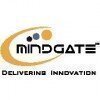
i
360 Degree Cloud
Technologies
Filter interviews by
360 Degree Cloud Technologies Interview Questions and Answers
9 Interview questions
I have utilized various job boards to enhance my job search, focusing on industry-specific platforms and general job sites.
LinkedIn: A powerful platform for networking and job searching, especially for professional roles.
Indeed: A comprehensive job board that aggregates listings from various sources, making it easy to find opportunities.
Glassdoor: Useful for researching company culture and salary information while...
MIS is a system that collects, processes, and presents information to support decision-making. Daily tasks are managed through organization, prioritization, and communication.
Define the purpose and scope of the MIS to ensure it aligns with organizational goals
Collect and input data from various sources to generate reports and analysis
Use software tools such as spreadsheets, databases, and business intelligence sys...
Sharding in Node.js involves splitting a database into smaller parts to improve performance and scalability.
Sharding is a technique used to horizontally partition data across multiple servers or databases.
It helps distribute the load evenly and improves performance by allowing parallel processing of queries.
In Node.js, sharding can be implemented using libraries like MongoDB's sharding feature or custom sharding l...
Indexing in Node.js is a way to optimize data retrieval by creating indexes on specific fields in a database.
Indexing in Node.js can be done using libraries like Mongoose for MongoDB databases.
Indexes can improve query performance by allowing the database to quickly locate the requested data.
Example: Creating an index on a 'username' field in a user collection can speed up queries searching for a specific user.
Event Loop in JavaScript manages the execution of multiple tasks in a single-threaded environment.
Event Loop is responsible for handling asynchronous operations in JavaScript.
It continuously checks the call stack and the task queue, moving tasks from the queue to the stack when the stack is empty.
Tasks like setTimeout, setInterval, and AJAX requests are handled by the Event Loop.
Event Loop ensures that JavaScript ...
I use finance in my day to day life by budgeting, tracking expenses, investing, and making financial decisions.
Creating and sticking to a monthly budget
Tracking expenses and income to ensure financial stability
Making investment decisions to grow wealth
Analyzing financial options before making big purchases
Design is the art of visually communicating ideas and solving problems through creativity and innovation.
Design is about creating visually appealing and functional solutions
It involves understanding the target audience and their needs
Design is a combination of creativity, problem-solving, and communication
Examples: logos, websites, packaging, posters
public static use for accessing methods and variables without creating an object
Allows access to methods and variables without creating an object
Useful for utility classes where objects are not needed
Can be used to create global variables or constants
Example: Math class in Java has only static methods and constants
Programs using loops are used to repeat a block of code multiple times until a certain condition is met.
Loops like 'for' and 'while' are commonly used in Python to iterate over a sequence of elements or execute a block of code until a condition is satisfied.
Example: for i in range(5): print(i) will print numbers from 0 to 4.
Nested loops can be used to iterate over multiple sequences or perform complex iterations.
E...
360 Degree Cloud Technologies Interview Experiences
21 interviews found
I applied via Job Portal and was interviewed in Jun 2023. There were 3 interview rounds.

(2 Questions)
- Q1. Questions are related to Apex, LWC, Lightning Aura Component, and Salesforce security
- Q2. What is Salesforce Security? Trigger framework. LWC Decorator
Trigger Coding test : Something based on rollup summary on Account object.
I appeared for an interview in Feb 2025.
(2 Questions)
- Q1. Can you tell me about yourself?
- Q2. What is your total years of experience, and in which industries have you worked?
(3 Questions)
- Q1. Tell me about yourself.
- Q2. What job boards have you utilized in your job search?
- Ans.
I have utilized various job boards to enhance my job search, focusing on industry-specific platforms and general job sites.
LinkedIn: A powerful platform for networking and job searching, especially for professional roles.
Indeed: A comprehensive job board that aggregates listings from various sources, making it easy to find opportunities.
Glassdoor: Useful for researching company culture and salary information while appl...
- Q3. Can you explain your experience with writing Boolean search queries and provide an example you have created live?
- Ans.
I have extensive experience in crafting Boolean search queries to identify top talent efficiently.
Utilized Boolean operators like AND, OR, and NOT to refine candidate searches.
Example: ("software engineer" OR "developer") AND (Java OR Python) NOT "intern".
Created complex queries to target specific skills and experience levels.
Regularly adjusted queries based on feedback and search results to improve accuracy.
(5 Questions)
- Q1. Can you tell me about yourself?
- Q2. Have you worked in both IT and non-IT sectors, and what relevant experience do you have in each?
- Ans.
I have experience in both IT and non-IT sectors, enhancing my skills in diverse recruitment strategies.
In the IT sector, I recruited for software developers and data analysts, focusing on technical skills and cultural fit.
In the non-IT sector, I worked with retail companies, hiring sales associates and managers, emphasizing customer service skills.
I utilized various sourcing techniques in IT, such as LinkedIn and GitHu...
- Q3. What job boards have you utilized, and which one do you consider the best?
- Q4. How do you handle pressure, particularly when deadlines are not met, especially in the context of performance reviews that could result in termination?
- Ans.
I manage pressure by prioritizing tasks, maintaining open communication, and focusing on solutions rather than problems.
Prioritize tasks: I assess which tasks are most critical and focus on those first. For example, during a busy hiring season, I prioritize roles that are essential to business operations.
Maintain open communication: I keep stakeholders informed about progress and challenges. For instance, if a deadline...
- Q5. Were you instructed to conduct a job search on LinkedIn and Naukri?
- Ans.
Yes, I was instructed to conduct job searches on LinkedIn and Naukri to identify suitable candidates.
Utilized LinkedIn's advanced search filters to find candidates with specific skills.
On Naukri, I set up job alerts to receive notifications for relevant profiles.
Engaged with potential candidates through personalized messages on LinkedIn.
Analyzed candidate profiles for experience and qualifications that match job descri...
Interview Preparation Tips
I applied via LinkedIn and was interviewed in Oct 2024. There were 2 interview rounds.
(2 Questions)
- Q1. Swift Medium-Level Question
- Q2. DSA Question - LCP
(2 Questions)
- Q1. Asking Question Related about CRM, etc.
- Q2. Related about chat design APP
Interview Preparation Tips
The second Round was not good. IDK my luck is bad or the Interviewer was a little bit arrogant. So yeah after 2 questions my mood was like not giving proper answers to questions. I want to just close this meeting ASAP. If someone doesn't know about this technology at least give him/her a chance to work on that maybe he will be fruitful in that time.
(3 Questions)
- Q1. Event Loop in jS
- Ans.
Event Loop in JavaScript manages the execution of multiple tasks in a single-threaded environment.
Event Loop is responsible for handling asynchronous operations in JavaScript.
It continuously checks the call stack and the task queue, moving tasks from the queue to the stack when the stack is empty.
Tasks like setTimeout, setInterval, and AJAX requests are handled by the Event Loop.
Event Loop ensures that JavaScript remai...
- Q2. Sharding in Node js
- Ans.
Sharding in Node.js involves splitting a database into smaller parts to improve performance and scalability.
Sharding is a technique used to horizontally partition data across multiple servers or databases.
It helps distribute the load evenly and improves performance by allowing parallel processing of queries.
In Node.js, sharding can be implemented using libraries like MongoDB's sharding feature or custom sharding logic ...
- Q3. Indexing in Node js
- Ans.
Indexing in Node.js is a way to optimize data retrieval by creating indexes on specific fields in a database.
Indexing in Node.js can be done using libraries like Mongoose for MongoDB databases.
Indexes can improve query performance by allowing the database to quickly locate the requested data.
Example: Creating an index on a 'username' field in a user collection can speed up queries searching for a specific user.
Skills evaluated in this interview
I applied via Naukri.com and was interviewed in Aug 2024. There were 2 interview rounds.
Odd man out series , reasoning 60 mins 40 questions
Print string reverse ,print even or odd numbers
Interview Preparation Tips
(2 Questions)
- Q1. What is your typical morning routine when starting your day in the office?
- Ans.
My typical morning routine in the office involves checking emails, prioritizing tasks, and preparing a to-do list.
Check emails for any urgent messages or updates
Prioritize tasks based on deadlines and importance
Prepare a to-do list for the day to stay organized and focused
- Q2. How do you define your Management Information System (MIS), and how do you manage your daily operational tasks?
- Ans.
MIS is a system that collects, processes, and presents information to support decision-making. Daily tasks are managed through organization, prioritization, and communication.
Define the purpose and scope of the MIS to ensure it aligns with organizational goals
Collect and input data from various sources to generate reports and analysis
Use software tools such as spreadsheets, databases, and business intelligence systems ...
Salesforce Cpq Developer Interview Questions & Answers
posted on 13 Aug 2024
(2 Questions)
- Q1. Tell me something about yourself
- Ans.
I am a dedicated Salesforce CPQ Developer with 5 years of experience in implementing and customizing Salesforce CPQ solutions for various clients.
5 years of experience in Salesforce CPQ development
Strong expertise in implementing and customizing Salesforce CPQ solutions
Ability to work with clients to understand their requirements and deliver tailored solutions
Proficient in Apex, Visualforce, and Salesforce Lightning co...
- Q2. Introduce yourself
- Ans.
I am a Salesforce CPQ Developer with 5 years of experience in implementing CPQ solutions for various industries.
5 years of experience in Salesforce CPQ development
Implemented CPQ solutions for industries like manufacturing, healthcare, and technology
Proficient in Salesforce CPQ configuration, pricing rules, and product bundling
I applied via Approached by Company and was interviewed in Aug 2023. There was 1 interview round.
(1 Question)
- Q1. I was first hired as a Contractual employee, and after that my post-journey started. When they saw my dedication and willingness to learn. They offered me this post and I have taken this as an opportunity.
Interview Preparation Tips
- Salesforce CRM
- Salesforce
Your attitude towards your work is so important and my manager was also so supportive.
Thank you, just be a learner and you will be hired everywhere.
I applied via Campus Placement
(2 Questions)
- Q1. Tell me about yourself
- Q2. How you use finance in your day to day life.
- Ans.
I use finance in my day to day life by budgeting, tracking expenses, investing, and making financial decisions.
Creating and sticking to a monthly budget
Tracking expenses and income to ensure financial stability
Making investment decisions to grow wealth
Analyzing financial options before making big purchases
Interview Preparation Tips
please do not waste your time going for an interview in this company.

(1 Question)
- Q1. General questions
(1 Question)
- Q1. Deep details regarding the application
(1 Question)
- Q1. Salary discussion

Logical and reasoning
(2 Questions)
- Q1. Programs about dictionaries
- Q2. Programs using loops
- Ans.
Programs using loops are used to repeat a block of code multiple times until a certain condition is met.
Loops like 'for' and 'while' are commonly used in Python to iterate over a sequence of elements or execute a block of code until a condition is satisfied.
Example: for i in range(5): print(i) will print numbers from 0 to 4.
Nested loops can be used to iterate over multiple sequences or perform complex iterations.
Exampl...
Top trending discussions






360 Degree Cloud Technologies Interview FAQs
Some of the top questions asked at the 360 Degree Cloud Technologies interview -
The duration of 360 Degree Cloud Technologies interview process can vary, but typically it takes about less than 2 weeks to complete.
Tell us how to improve this page.
360 Degree Cloud Technologies Interviews By Designations
- 360 Degree Cloud Technologies Salesforce Developer Interview Questions
- 360 Degree Cloud Technologies Quality Analyst Interview Questions
- 360 Degree Cloud Technologies Talent Acquisition Specialist Interview Questions
- 360 Degree Cloud Technologies Graphic Designer Interview Questions
- 360 Degree Cloud Technologies Data Analyst Interview Questions
- 360 Degree Cloud Technologies Software Developer Interview Questions
- 360 Degree Cloud Technologies Photoshop Designer Interview Questions
- 360 Degree Cloud Technologies Business Analyst Interview Questions
- Show more
Interview Questions for Popular Designations
- Salesforce Developer Interview Questions
- Senior Executive Interview Questions
- Software Developer Interview Questions
- Business Analyst Interview Questions
- Sales Executive Interview Questions
- Graduate Engineer Trainee (Get) Interview Questions
- Java Developer Interview Questions
- Data Analyst Interview Questions
- Show more
Overall Interview Experience Rating
based on 16 interview experiences
Difficulty level
Duration
Interview Questions from Similar Companies
360 Degree Cloud Technologies Reviews and Ratings
based on 178 reviews
Rating in categories
|
Salesforce Developer
298
salaries
| ₹3.4 L/yr - ₹13 L/yr |
|
Senior Salesforce Developer
74
salaries
| ₹10 L/yr - ₹32 L/yr |
|
Salesforce Administrator
49
salaries
| ₹3.3 L/yr - ₹8 L/yr |
|
Software Developer
35
salaries
| ₹4.2 L/yr - ₹9.5 L/yr |
|
Software Engineer
24
salaries
| ₹3 L/yr - ₹12 L/yr |

HCL Infosystems

Softenger

Capital Numbers Infotech

JK Tech
- Home >
- Interviews >
- 360 Degree Cloud Technologies Interview Questions













